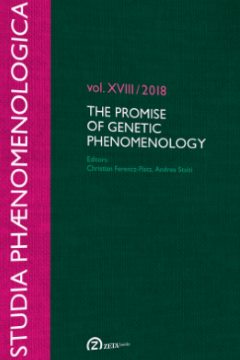Husserl et le jeune Heidegger sur l'intentionnalité pratique et sociale
de l'enroulement intentionnel à l'auto-suffisance de la vie
pp. n/a
Abstract
This paper examines how practical intentionality is described by Husserl and Heidegger respectively, and looks at the phenomenological and sociological issues of these descriptions. In Husserl, the phenomenological reduction reveals that the practices of the world involve two intentionalities which wrap one inside the other. The foundation of this dynamic is a theoretical intentionality: there are always reasons which make it possible to understand why such and such an object is surrounded by such and such a value. In the early Heidegger’s work, life is not expressed by means of judgments, and it coils around itself, perpetuating itself in the ordinary practices of the world. We show that this phenomenological immanentism is put in question by Heidegger himself, and in particular in connection to the issue of the social source of intentionality. We consider the question of the compatibility between immanentism and normativity, which involve a dialectic that sheds new light on the phenomenological project.
Publication details
Published in:
Ferencz-Flatz Christian, Staiti Andrea (2018) The promise of genetic phenomenology. Studia Phaenomenologica 18.
Full citation:
Slama Paul (2018) „Husserl et le jeune Heidegger sur l'intentionnalité pratique et sociale: de l'enroulement intentionnel à l'auto-suffisance de la vie“. Studia Phaenomenologica 18, n/a.


